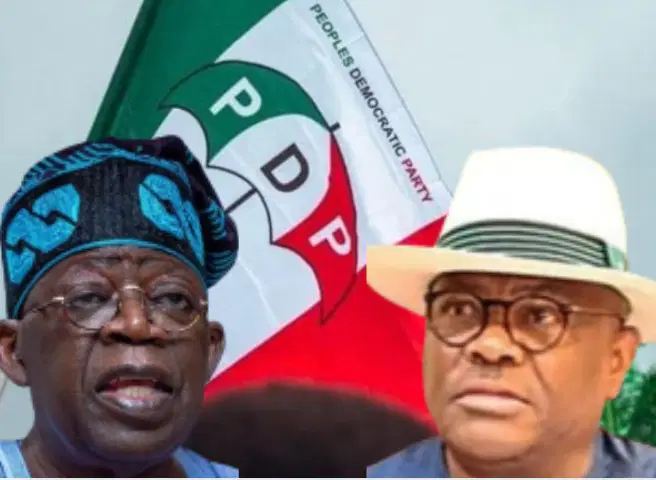
By Ola Williams-
President Bola Tinubu has stepped in to halt the sweeping property revocations in the Federal Capital Territory (FCT), giving owners, including the opposition Peoples Democratic Party (PDP), corporate bodies, and individuals, a 14-day window to clear their outstanding ground rent and regularise land documents.
The announcement came Monday night from Chijioke Nwankwoeze, Director of Land Administration in the FCT, during a media briefing in Abuja.
“On May 26, 2025, enforcement began on 4,794 properties revoked for non-payment of ground rent spanning 10 to 43 years,” Nwankwoeze explained. “These properties include those belonging to government institutions, corporate organisations, and private individuals. The FCT Administration is committed to carrying out its duties without fear or favour.”
However, he revealed that President Tinubu had ordered a temporary suspension of the exercise. “By the intervention of His Excellency, President Bola Ahmed Tinubu, GCFR, holders of the affected properties have been granted 14 days to settle the outstanding ground rents, including applicable penalties,” he said.
Under the new directive, defaulters in the Central Area must pay a penalty of N5 million in addition to owed rent. Those in Maitama, Asokoro, Wuse II, and Guzape face a N3 million penalty, while property owners in Wuse I, Garki I, and Garki II are to pay N2 million plus arrears.
Importantly, Nwankwoeze warned individuals who purchased properties without securing the required Minister’s Consent or registering their Deeds of Assignment to do so within the grace period. “They have 14 days to comply at the FCT Department of Land Administration,” he stressed.
FCT Minister Barrister Nyesom Wike, whose recent enforcement drive sparked political tension and public backlash, also announced a 14-day grace for all titleholders to settle their Right of Occupancy (R-of-O) and Certificate of Occupancy (C-of-O) bills or risk revocation.
“Going forward,” Wike said, “we advise all property owners in the FCT to ensure timely payment of all relevant bills and charges. This will enable the government to continue implementing vital development projects for the benefit of the people.”
The president’s intervention is widely seen as a move to ease political tensions and allow key institutions and stakeholders, including opposition-linked entities, a final chance to retain their holdings.



